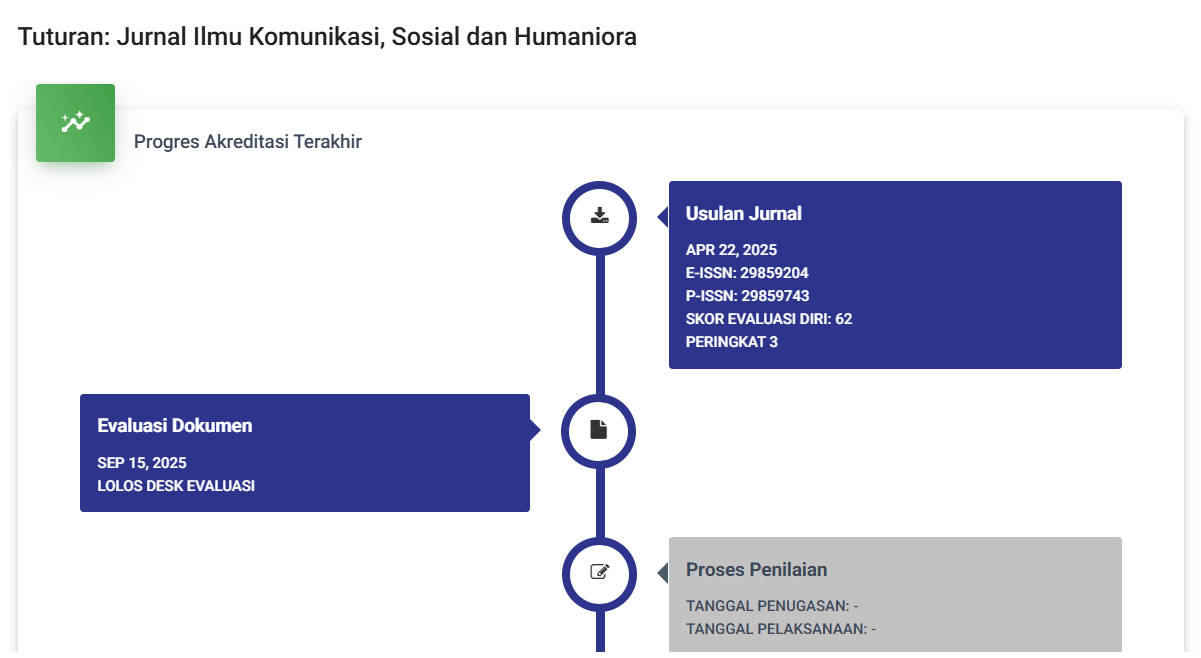PEMAKNAAN TRADISI PETIK LAUT BAGI MASYARKAT PESISIR
DOI:
https://doi.org/10.47861/tuturan.v1i2.242Keywords:
Petik Laut, Puger, StrukturasiAbstract
Indonesia has very diverse traditions and customs. The culture in Indonesia is one of the historical heritages that we must preserve today because life is becoming more modern, little by little eroding the existence of local culture. In its history, Indonesia is a society with many tribes and cultures that have local wisdom that is preserved by the people. Petik Laut is one of the traditions in Indonesia which is currently still being carried out precisely in Puger District, Jember Regency. Puger people think that the results of the natural surroundings are a resource and the key to their well-being. Therefore, this has made some people who live in coastal areas have a tradition that is carried out as a form of gratitude and thanks because the natural resources they get from the sea can meet their needs. Coastal communities usually use rituals that have become a hereditary tradition as an expression of gratitude. In addition, this tradition carried out by coastal communities is also a prayer or hope that the fish catch will be abundant and also get safety. This activity is carried out during Muharram or Suro. This Petik Laut tradition is an amalgamation of local wisdom and religion. In the tradition of sea cucumbers, there are prayers and recitation of the holy verses of the Koran before finally the offerings are thrown into the sea
References
Ainiyah, N. (2017). Petik laut: Social-ideological accommodation in the fishermen community of Kedungrejo Muncar Banyuwangi. Religia, 154-173.
Akhmad Ganefo, B. S. (2006). Kepercayaan Masyarakat Pesisir Selatan Jawa Timur Terhadap Laut (Studi Kasus Larung Sesaji Di Puger Dan Watu Ulo Jember). repository.unej.ac.id, 1-10.
Komarudin, K., Adrianti, R., & Mashud, M. (2022). The Role of Social Media and Local Wisdom to Puger Fishermen's Social Resilience on Sea Accidents. The Journal of Society and Media, 6(2), 422-443
Lily Handayani, B. (2014). TRANSFORMASI PERILAKU KEAGAMAAN (Analisis Terhadap Upaya Purifikasi Akidah Melalui Ruqyah Syar’iyah Pada Komunitas Muslim Jember). The Sociology of Islam, 1(2). https://doi.org/10.15642/jsi.2011.1.2.%p
Nur Ainiyah. (2017). RITUAL PETIK LAUT DAN KERAGAMAN (KERAGAMAN DAN KOMUNIKASI RITUAL DI KALANGAN NELAYAN MULTIETNIS DI KEDUNGREJO MUNCAR BANYUWANGI). Empirisma Vol. 26
Qomariyah, D. N., & Sholihin, A. B. (2019). Kontestasi Pro dan Kontra Ritual Petik Laut pada Masyarakat Nelayan Puger Jember. Fenomena, 18(1).
Rahayu, S. S., Waskito, W., & Widianto, A. (2022). Budaya Petik Laut: Solidaritas sosial berbasis kearifan lokal pada masyarakat pesisir di Dusun Parsehan Kabupaten Probolinggo. Jurnal Integrasi dan Harmoni Inovatif Ilmu-Ilmu Sosial (JIHI3S), 2(6), 565-576.
Rahma, R. M. (2022). Pethik Laut Tradition as a Ritual of Repelling Bala (Study of Sociology Disaster). IJTIMAIYA: Journal of Social Science Teaching, 6(1), 99-110.
Setiari, A. D. SINKRETISME JAWA DAN ISLAM DALAM TRADISI PETIK LAUT DALAM RANGKA MENUJU DESA WISATA DI KECAMATAN PUGER KABUPATEN JEMBER.
Widiyawati, A. A. (2018). TRADISI LARUNG SESAJI PUGER UNTUK MEMBENTUK MASYARAKAT POLISENTRIS. Jantra, 13(2), 125-138.
Wijaya, R. R., & Jannah, R. (2019). Makna Ritual methik di Kalangan Petani: Studi Tentang Kearifan Lokal Petani Desa Sumbersewu Kabupaten Banyuwangi (The Ritual Meaning of methik in Farmer Sphere: A Study on Farmer Local Wisdom in Sumberwaru Village, Banyuwangi Regency). E-Sospol, 6(1), 27-35.








